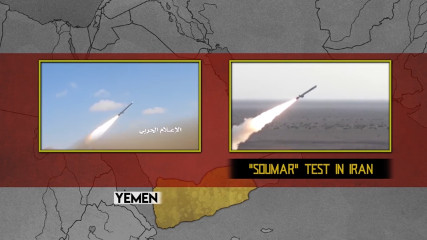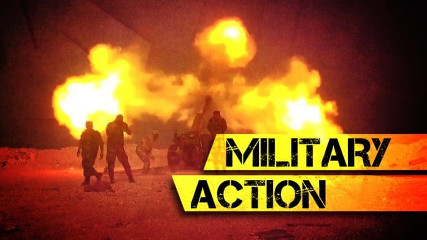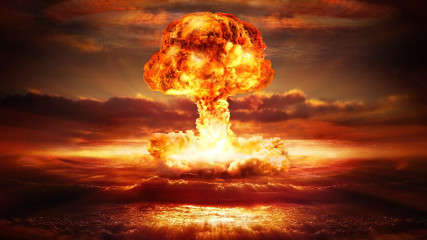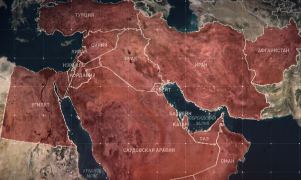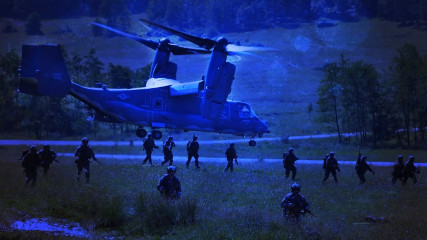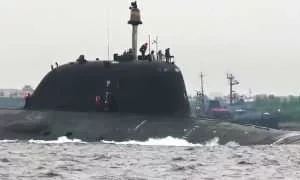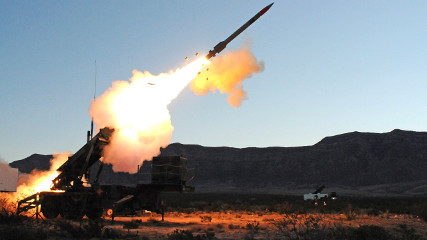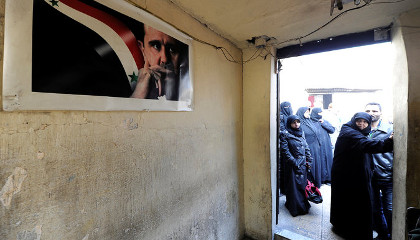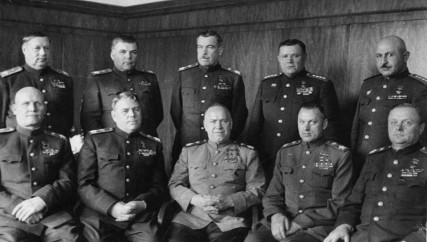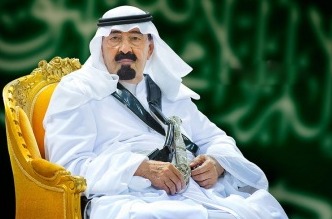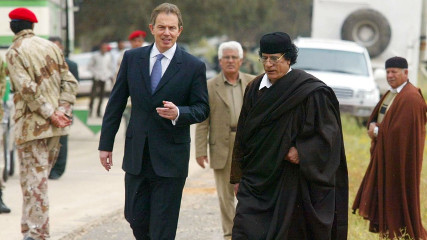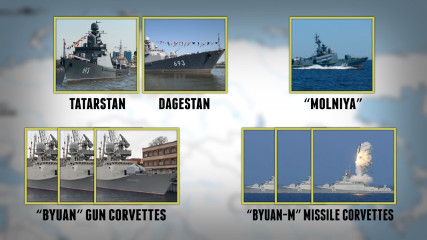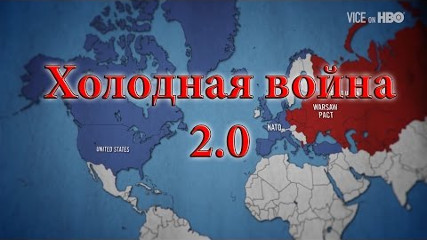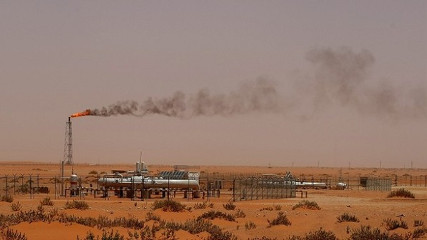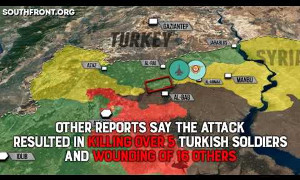Конфликт Катара и Саудовской Аравии
Конфликт Катара и Саудовской Аравии
Конфликт Катара и Саудовской Аравии. Причины, последствия, роль России, Турции и США (Русский перевод Романа Попова)
Авторский перевод видео проекта SouthFront.
Текущий кризис вокруг Катара представляет собой наиболее серьезный конфликт среди арабских государств Персидского залива со времен окончания Холодной Войны. И хотя данные автократичные, богатые нефтью государства-члены ОПЕК исторически переживали пик своих союзных отношений только перед лицом общего врага (СССР, Саддам Хуссейн, Иран и т.д.), взаимное недоверие среди них никогда не доходило до того уровня, чтобы они предъявляли кому-то из них ультиматум, который, по-сути, требует полного подчинения.
И в это тут же выявило несколько интересных моментов.
Во-первых, отметим, что разрыв дипломатических отношений с Саудовской Аравией и еще с несколькими другими крупными региональными игроками, включая Египет, а также лишение Катара возможности использовать сухопутные и воздушные транспортные маршруты на территории Саудовской Аравии и других стран Персидского залива, включая Египет, произошли внезапно и без всяких предупреждений. Между Катаром и любой из соседних с ним стран не было ни видимого конфликта, ни каких-либо провокационных шагов на политическом уровне. Таким образом, можно предположить, что данный шаг был обдуманным и планомерным действием со стороны Саудовской Аравии и ее партнеров.
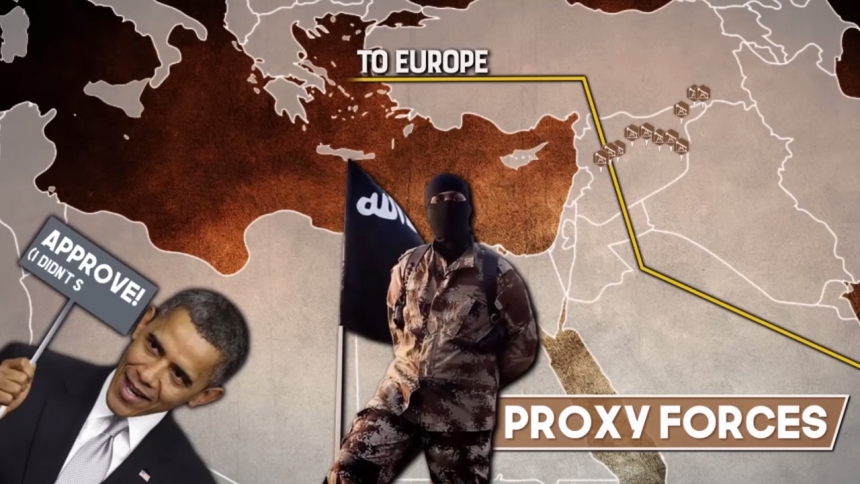
И хотя роль США в данном кризисе неочевидна, более чем маловероятно то, что Саудовская Аравия могла бы предпринять столь решительный шаг без координации с США, особенно с учетом того, что данный шаг произошел буквально тут же после визита высокой делегации во главе с Трампом в Саудовскую Аравию. И пусть первоначально президент Трамп сохранял молчание, в конце концов он призвал в Твиттере поддержать сторону Саудовской Аравии в борьбе с Катаром, даже несмотря на то, что США по-прежнему сохраняют существенное военное присутствие в Катаре.
Выдвинутые против Катара обвинения стали попросту радикальные. Главы как США, так и Саудовской Аравии обвинили Катар во всех смертных грехах, среди которых – поддержка кровавого исламистского экстремизма. Трамп зашел еще дальше и заявил то, что важным загом по решению проблемы терроризма будет изменение политики Катара.
Исходя из природы возникновения данного кризиса можно предположить, что он являет собой тот конфликт, который годами кипел глубоко под поверхностью и наконец-то вырвался наружу. Распад союза Катар-Саудовская Аравия и образование просаудовской коалиции наводит на мысли, что в кризисе замешано несколько сторон.
Не последнюю роль в данном кризисе играет произошедшее за последние годы падение цен на энергоресурсы. Затратные войны Саудовской Аравии в Сирии и Йемене только ухудшили данную проблему. Поскольку основной статьей доходов Катара является продажа природного газа, что не регулируется Организацией стран-экспортеров нефти (ОПЕК), возможно, Саудовская Аравия пытается таким образом вынудить Катар, чей ВВП на душу населения является крупнейшим в мире, поделиться частью своего дохода с ослабевающей монархией саудитов.
Данный радикальный шаг, скорее всего, не потребовался бы, реализуй сейчас Саудовская Аравия и Катар свои амбиции по Сирии. Ведь как-никак целью этих стран было проложить свои трубопроводы через территорию Сирии, а также, используя ИГИЛ в роли марионеток, захватить нефтяные месторождения Сирии – все это, скорее всего, делалось с молчаливого согласия администрации Обамы. И хотя исход сирийской войны еще неопределен, уже очевидно то, что усилия Саудовской Аравии и Катара обогатиться за счет Сирии провалались.
Кроме того, саудиты пытаются установить свое политическое доминирование в данном регионе, в рамках стратегии «суннитского НАТО». Реальным препятствием перед достижением данной цели была независимая внешняя политика Катара, который всегда игнорировал или даже подрывал деятельность саудитов в Сирии и Ливии. Более того, судя по-всему, именно из-за самостоятельности Катара страны по типу Египта и Израиля поддерживали шаги Саудовской Аравии. Катар является главным спонсором движений Братья Мусульмане и Хамас, которые являются главными раздражителями соответственно в Египте и Израиле.
QATAR CRISIS: ORIGINS AND CONSEQUENCES
The current crisis surrounding Qatar represents the most severe conflict among Gulf Arab states since the end of the Cold War. While these oil-rich, autocratic OPEC members have historically been at the most allies of convenience united by common fears (USSR, Saddam Hussein, Iran, etc.), their mutual mistrust has arguably never escalated to the point of demanding to what amounts to a complete surrender by one of its members. Several interesting features of this crisis immediately jump out.
First of all, the breaking off of diplomatic relations by Saudi Arabia and several other major regional powers including Egypt, and depriving Qatar of the ability to use land and air transport routes through or over the territory of Saudi Arabia and other Gulf states, including Egypt came suddenly and without any warning. There was no ongoing visible dispute between Qatar and any of its neighbors, no major recent provocative policy moves. This suggests it was a premeditated and planned move by Saudi Arabia and its partners.
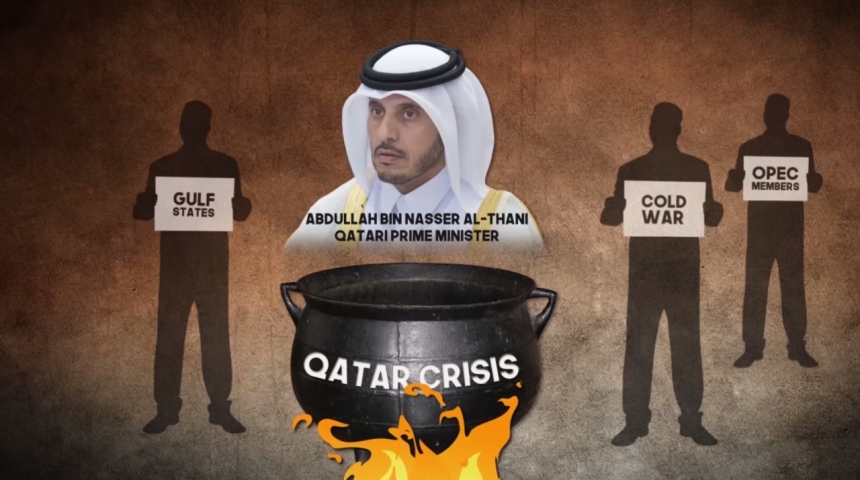
While the US role in the crisis is still ambiguous, it is unlikely in the extreme that Saudi Arabia would have undertaken something so drastic without coordination with the US, particularly since this action comes literally on the heels of President Trump’s high-profile visit to Saudi Arabia. While initially silent, President Trump ultimately took to Twitter to back Saudi Arabia against Qatar, even as the US still maintains major military presence in that country.
The nature of the accusations leveled at Qatar is nothing short of extreme. Both US and Saudi leaders accused Qatar of about the worst offense currently available, namely supporting violent Islamic extremism. Trump went so far as to say that Qatar’s change of policies would be a major step toward resolving the problem of terrorism.
The nature of the crisis suggests it represents tensions that long bubbled under the surface but now have finally burst into the open. The Qatari-Saudi falling out, and the make-up of the pro-Saudi faction, suggests that several factors at work here. However, it is US client states’ awareness that is driving them to seek help from Moscow, which in turn gives us narratives of “Russian meddling”, including now in the case of Qatar.
Not the least trivial of them is the drop in energy prices in recent years. Saudi Arabia’s costly wars in Syria and Yemen only make that problem worse. Since Qatar’s main line of business is natural gas whose production is outside OPEC’s purview, it may be that Saudi Arabia is attempting to force Qatar, whose per-capita GDP is the highest in the world, to share some of its wealth with the failing Saudi monarchy
This drastic step would likely have not been needed had the Saudi and Qatari ambitions in Syria been realized by now. The objective was, after all, the laying of pipelines through the territory of Syria and also seizing Syria’s oil fields using ISIS as a proxy, all very much with the tacit approval of the Obama Administration. While the outcome of the war in Syria is still uncertain, it is all too clear the Saudi and Qatari efforts to expand their wealth at Syria’s expense have failed.
The Saudis are also attempting to establish their political dominance within the region, as part of the “Sunni NATO” concept. Qatar’s independent foreign policy which often ignored or even undermined Saudi aims in Syria and Libya, was naturally an obstacle in reaching that objective. Moreover, Qatar’s freelancing also appears to be the reason why countries like Egypt and Israel have backed Saudi moves. Qatar is a major sponsor the Muslim Brotherhood and of Hamas which are major irritants for these two countries, respectively.
The other major show of Qatari independence has been its Iran policy, where it is also sharply at odds with the hard-line Saudi approach. Since the “Sunni NATO” is aimed squarely at Iran and should Saudi Arabia succeed in crushing Qatar’s independence, it will establish itself as the unquestionably dominant political power within the Arabian Peninsula. The harsh disciplining and humiliation of Qatar would also serve as a long-term warning for any other minor Gulf power which might attempt to pursue a foreign policy independently of Saudi Arabia. The importance of Iran to the Saudi-Qatar conflict has been starkly demonstrated by Iran’s willingness to supply Qatar with food to overcome Saudi blockade, and the terrorist attack in Tehran that was attributed to Saudi Arabia by Iranian authorities. Tehran also opened its airspace for Qatar Airways aircraft and expanded unofficial efforts to draw Doha into own sphere of influence.
With that in mind, Trump’s recent visit to Saudi Arabia which culminated with the rather bizarre “glowing orb” ceremony, acquires a new meaning. While we do not yet know just how much leeway Washington is giving Riyadh in its dealings with Doha and how much coordination and communication there are between the two powers, Trump’s behavior while in Saudi Arabia was likely intended to send a message that Saudi Arabia has the full faith and confidence of the United States, though evidently Qatar had failed to heed the warning. If the Saudi action does result in Qatari abandonment of Muslim Brotherhood and Hamas, it will help the US restore some of its political standing in the region by drawing both Israel and, especially, Egypt, closer toward the US. Qatar’s emasculation furthermore promises to bring the wars in not only Syria but also Libya to a closer conclusion by eliminating a significant player pursuing an independent objective. Last but not least, Qatar also enjoys rather better relations with both Russia and Turkey than Saudi Arabia, which no doubt raised additional fears in Washington that Russia is about to take the US’ place as the most influential external power in the Middle East. The emergence of a Russia-Iran-Turkey-Qatar constellation as a result of Russian diplomacy and Turkey’s own regional ambitions is a nightmare scenario for both Riyadh and Washington.
It is not yet clear whether the Trump Administration compelled Saudi Arabia to undertake this course or whether Trump had no choice but to endorse and acquiesce in the Saudi course of action, with some accommodations made to respect US interests outlined above. On the one hand, Trump could have easily used the same “support for terrorism” cudgel on the Saudis that in the end he used on the Qataris. On the other hand, the power of the Saudi lobby in Washington and the absence of a proxy power capable of doing to Saudi Arabia what Saudi Arabia is doing to Qatar means that the Saudis are not simply following Washington’s orders.
However, in light of Trump’s upcoming visit to Poland and the participation in the so-called Three Seas Initiative summit, one must also entertain the possibility that the US saw in Qatar an unwelcome competitor for the liquid natural gas (LNG) market. It is becoming apparent that the US will continue to expand its role as hydrocarbon exporter in the future, which will naturally bring it into conflict with not only Russia, but also Qatar, and even Saudi Arabia. It is also becoming apparent that at least some of that expansion will take place in Europe, or the market which Qatar had hoped to access by sponsoring jihadists in Syria who would ultimately pave the way for its gas pipelines into Europe.
The falling out between the US and Qatar appears to have had a sobering impact on Qatar’s leaders who, evidently fearing that any show of weakness might lead to their overthrow and even death, have dug in their heels and began to seek support from unorthodox sources. That process, in turn had shown both the extent of anti-Saudi sentiment in the region and the limits of US influence. Turkey’s President Erdogan came out strongly in support of Qatar, and went so far as to reaffirm the Turkey-Qatar military alliance and send troops to Qatar. Pakistan similarly decided to send a military force to Qatar, and collectively these actions are likely sufficient to dissuade any Saudi military adventurism, possibly with cooperation with dissatisfied factions of Qatari military. At this stage, it would take a direct US military intervention to bring down the Qatari government, but the US clearly prefers to do its dirty work through proxies. Moreover, there is no sign of an effort to interdict or block Qatar’s LNG tanker traffic. Even though Egypt had joined the anti-Qatar coalition, it has not blocked LNG tankers carrying Qatari gas from passing the Suez Canal.
Even so, Qatari leaders were concerned enough to send their Foreign Minister to Moscow for consultations. Nevertheless, considering that Saudi Arabia responded to Turkey’s support of Qatar by expressing its own support for the Kurdish cause–so far only verbal–it does appear that Russia, Turkey, and many other countries in the region do not wish to see Qatar brought to heel. Russian military spokesmen also noted that in the meantime the war in Syria had greatly diminished in its intensity as the Qatar- and Saudi Arabia-backed militants now find themselves in a very confused situation where it’s not clear who is supposed to be their enemy, Syrian forces or other rebel groupings. However the situation evolves in the future, it is unlikely in the extreme Qatar will be close collaborator in any Saudi schemes. Instead it is more than likely Qatar will gradually drift further away from Saudi policies and bolster its ties with Turkey, and therefore indirectly also with Russia and Iran.
As a final note, one cannot but help reflect on the fact this is a severe and potentially very dangerous confrontation between, after all, two important US allies. Considering that both Qatar and Saudi Arabia are members of the “Free World” (sic) of which the US is the undisputed leader, the fact that a few policy disagreements among these members can no longer be managed by means short of blockade and threats of war does not speak highly of the US ability to continue to maintain its empire. While the Saudi-Qatari conflict is unprecedented in its intensity, it is far from being the only internal “Free World” conflict which the US is apparently powerless to resolve. We have already seen Brexit, the looming “two-speeds EU”, the Turkey-EU and Turkey-NATO spats, the failure of TTIP and TPP multilateral US-centric trade deals, and other signs of US weakness. The use of Saudi Arabia against Qatar suggests the US might be moving toward a different model of imperial governance, namely “divide and rule” among its own client states. In the short term this may well be successful.
